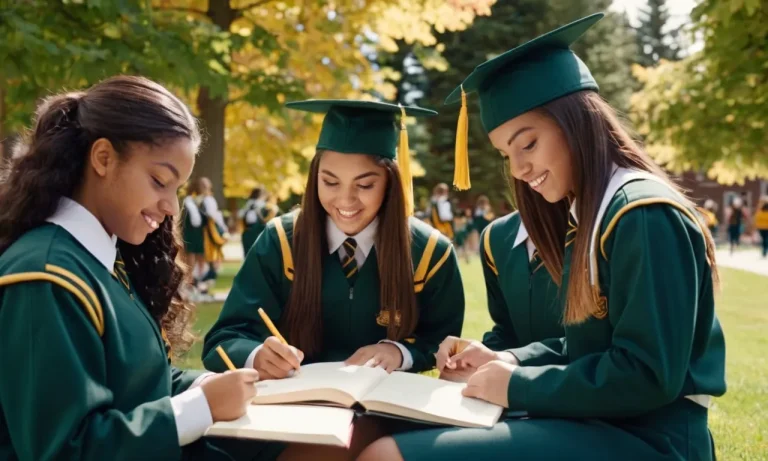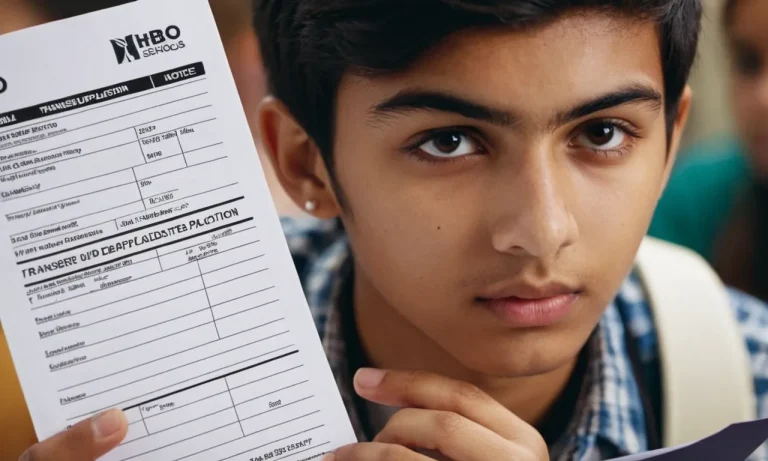The glitz and glamour of the entertainment industry often captivate our imaginations, but behind the scenes, the lives of child actors are far from ordinary. As these young talents navigate the demanding world of acting, one burning question arises: Do child actors go to school?
If you’re short on time, here’s a quick answer to your question: Yes, child actors do attend school, but their educational journey is often tailored to accommodate their unique circumstances and demanding schedules.
In this comprehensive article, we’ll delve into the intricate world of child actors’ education, exploring the legal requirements, alternative schooling options, and the challenges they face in balancing their academic pursuits with their acting careers.
We’ll also shed light on the support systems in place to ensure these young performers receive a well-rounded education while pursuing their dreams on the big screen or stage.
Legal Requirements for Child Actors’ Education
Child actors are often thrust into the limelight at a young age, and their education can sometimes take a backseat to their acting careers. However, there are strict legal requirements in place to ensure that these talented youngsters don’t miss out on their academic development.
These laws are designed to strike a balance between their professional pursuits and their right to a proper education.
State and Federal Laws
In the United States, child labor laws are governed by both federal and state regulations. The Fair Labor Standards Act (FLSA) sets the federal standards for child labor, including the minimum age for employment, hours of work, and hazardous occupations.
Additionally, each state has its own set of laws that may be more stringent than the federal guidelines.
Work Permits and Tutoring Requirements
- Most states require child actors to obtain a work permit or employment certificate before they can legally work on a film or TV set.
- These permits often stipulate that the production company must provide a licensed teacher or tutor to ensure the child’s education is not disrupted.
- According to the Study Mode website, in California, for example, child actors must receive at least three hours of tutoring for every day they work on set.
Ensuring Compliance on Set
Ensuring compliance with these laws is a collaborative effort between the production company, the child’s parents or guardians, and the designated teacher or tutor. On-set tutors are responsible for providing instruction, assigning homework, and tracking the child’s academic progress. They work closely with the child’s regular school to ensure a seamless transition between their on-set and traditional education.
Furthermore, many productions go above and beyond the legal requirements to create a nurturing and educational environment for their young stars. For instance, some sets have dedicated classrooms or study areas where child actors can learn and complete assignments during breaks.
According to a Hollywood Reporter article, approximately 15% of child actors in Los Angeles are homeschooled to accommodate their busy schedules. This flexibility allows them to balance their acting commitments while still receiving a quality education.
While the demands of the entertainment industry can be challenging for young performers, the legal requirements and support systems in place help ensure that child actors don’t have to sacrifice their education for their dreams of stardom.
With the right guidance and resources, these talented individuals can thrive both on and off the set. 😊
Alternative Schooling Options for Child Actors
For child actors, balancing their on-screen careers with education can be a daunting task. However, there are several alternative schooling options available that cater to their unique needs and schedules.
These options aim to provide a flexible and comprehensive learning environment while allowing them to pursue their acting aspirations.
On-Set Tutoring and Studio Teachers
One of the most common alternatives for child actors is on-set tutoring and studio teachers. Many production companies and studios employ certified teachers to ensure that young performers receive quality education while on set.
These teachers work closely with the children, providing personalized instruction and tailoring the curriculum to accommodate their filming schedules. According to the SAG-AFTRA guidelines, a studio teacher must be present whenever a minor is employed on a production set.
Online and Distance Learning
With the advent of technology, online and distance learning have become increasingly popular options for child actors. These programs offer a flexible and self-paced learning environment, allowing students to access course materials and submit assignments remotely.
Online schools like K12 and Connections Academy provide accredited curricula and personalized support, catering to the unique needs of child actors. 🎓 Additionally, many traditional schools now offer online or hybrid options, enabling students to balance their education with their acting commitments.
Homeschooling and Flexible Schedules
Homeschooling is another viable option for child actors and their families. This approach allows for maximum flexibility, as the curriculum and schedule can be tailored to accommodate the child’s acting commitments.
Parents or hired tutors can design customized lesson plans and adapt the teaching methods to suit the child’s learning style. 👨🏫 According to a recent study by the Responsible Homeschooling organization, approximately 10% of homeschooled children are involved in the entertainment industry.
Regardless of the chosen alternative schooling option, it’s crucial for child actors and their families to prioritize education while pursuing their acting dreams. With proper planning, support, and dedication, these young performers can achieve a well-rounded education while exploring their talents on the big screen or stage.
🎥📚
Balancing Acting and Academics: Challenges and Strategies
Child actors face a unique set of challenges when it comes to balancing their acting careers and academic pursuits. While the entertainment industry can open doors to incredible opportunities, ensuring a well-rounded education is crucial for their personal and professional growth.
Here, we delve into the strategies and support systems that can help child actors navigate this delicate balance.
Time Management and Prioritization
Juggling school, rehearsals, filming schedules, and personal time can be a daunting task for child actors. Effective time management and prioritization are key to ensuring they don’t fall behind in their studies.
Many production companies and educational institutions have recognized this challenge and offer flexible educational programs tailored to the unique needs of young performers. These programs often involve a combination of on-set tutoring, online classes, and regular school attendance when possible.
According to a study by the Child Actors Pro Association, over 75% of child actors who participated in structured time management programs reported improved academic performance and reduced stress levels.
😊 Prioritizing tasks, setting achievable goals, and maintaining a healthy work-life balance are essential for child actors to thrive in both their careers and education.
Maintaining Focus and Motivation
The glamour and excitement of the entertainment industry can sometimes be a distraction for child actors, making it challenging to stay focused on their studies. Maintaining motivation and fostering a love for learning are crucial.
Parents, teachers, and mentors play a vital role in encouraging child actors to embrace education as a lifelong journey, not just a temporary obligation.
One effective strategy is to connect academic subjects to their interests and passions. For instance, if a child actor is passionate about history, their tutor could incorporate historical contexts into their lessons, making the material more engaging and relevant.
This approach not only enhances their learning experience but also reinforces the value of education in their personal and professional growth.
Support Systems and Mentorship
Navigating the demanding world of acting and academics can be overwhelming for child actors, which is why having a strong support system is crucial. Parents, guardians, and trusted mentors play a pivotal role in providing guidance, emotional support, and encouragement.
Many successful child actors have credited their mentors for helping them stay grounded and focused on their goals. Organizations like The Jackie Coogan Foundation offer mentorship programs specifically designed for child actors, pairing them with industry professionals who can share their experiences and offer valuable advice.
Furthermore, fostering a supportive and nurturing environment within the production team can make a significant difference. Producers, directors, and on-set teachers who prioritize the well-being and education of child actors can create a positive and conducive atmosphere for learning and growth.
Success Stories: Child Actors Who Excelled in Education
Inspiring Examples of Academic Achievement
While the world of entertainment often captivates audiences, some child actors have proven that they can shine both on the screen and in the classroom. These young talents have defied the stereotypes and demonstrated remarkable dedication to their education, serving as inspiring examples of academic achievement.
One shining example is Natalie Portman, who starred in films like “Léon: The Professional” and “Star Wars: Episode I – The Phantom Menace” as a child. Despite her early success in Hollywood, Portman pursued higher education with unwavering determination.
She graduated from Harvard University with a bachelor’s degree in psychology, and even co-authored two research papers that were published in scientific journals. Portman’s academic prowess earned her a prestigious fellowship at Hebrew University in Jerusalem. 🎓
Another inspiring story is that of Jodie Foster, who began her acting career at the tender age of three. Foster’s talent was undeniable, but she never let her Hollywood success overshadow her educational aspirations.
She attended Yale University, one of the most prestigious institutions in the world, and graduated with a bachelor’s degree in literature. Foster’s dedication to learning extended beyond her undergraduate studies, as she later pursued her passion for filmmaking at the prestigious American Film Institute.
🎥
Pursuing Higher Education After Child Acting
Many child actors have chosen to prioritize their education after achieving success in the entertainment industry. This decision not only broadens their horizons but also provides them with a solid foundation for future endeavors.
Dakota Fanning, who rose to fame as a child star in films like “I Am Sam” and “War of the Worlds,” is a prime example. After establishing herself as a talented actress, Fanning decided to pursue higher education at New York University (NYU).
She graduated with a degree in women’s studies, demonstrating her commitment to both her craft and intellectual growth. 👩🎓
Similarly, Emma Watson, best known for her role as Hermione Granger in the “Harry Potter” series, prioritized her education alongside her acting career. Watson took a break from filming to attend Brown University, where she studied literature and graduated with a bachelor’s degree.
Her dedication to learning and personal growth is truly admirable, serving as an inspiration to young people worldwide. 📚
These success stories remind us that child actors can excel both on the screen and in the classroom. By balancing their artistic pursuits with academic endeavors, they not only nurture their talents but also broaden their horizons and pave the way for future opportunities.
Their achievements are a testament to the power of dedication, hard work, and a thirst for knowledge. 💯
Conclusion
The world of child acting is a delicate balance between pursuing dreams and ensuring a well-rounded education. While the demands of the entertainment industry can be daunting, the legal framework and alternative schooling options provide a path for these young talents to thrive academically while honing their craft.
From on-set tutoring to online learning and homeschooling, child actors have access to a variety of educational resources tailored to their unique needs. However, success in this realm requires unwavering dedication, time management skills, and a strong support system to navigate the challenges of balancing acting and academics.
As we’ve seen through inspiring success stories, child actors who prioritize their education can not only achieve remarkable feats on screen but also pave the way for future academic and professional pursuits.
By embracing the opportunities available and maintaining a steadfast commitment to learning, these young performers can truly have it all – a thriving acting career and a solid educational foundation.






